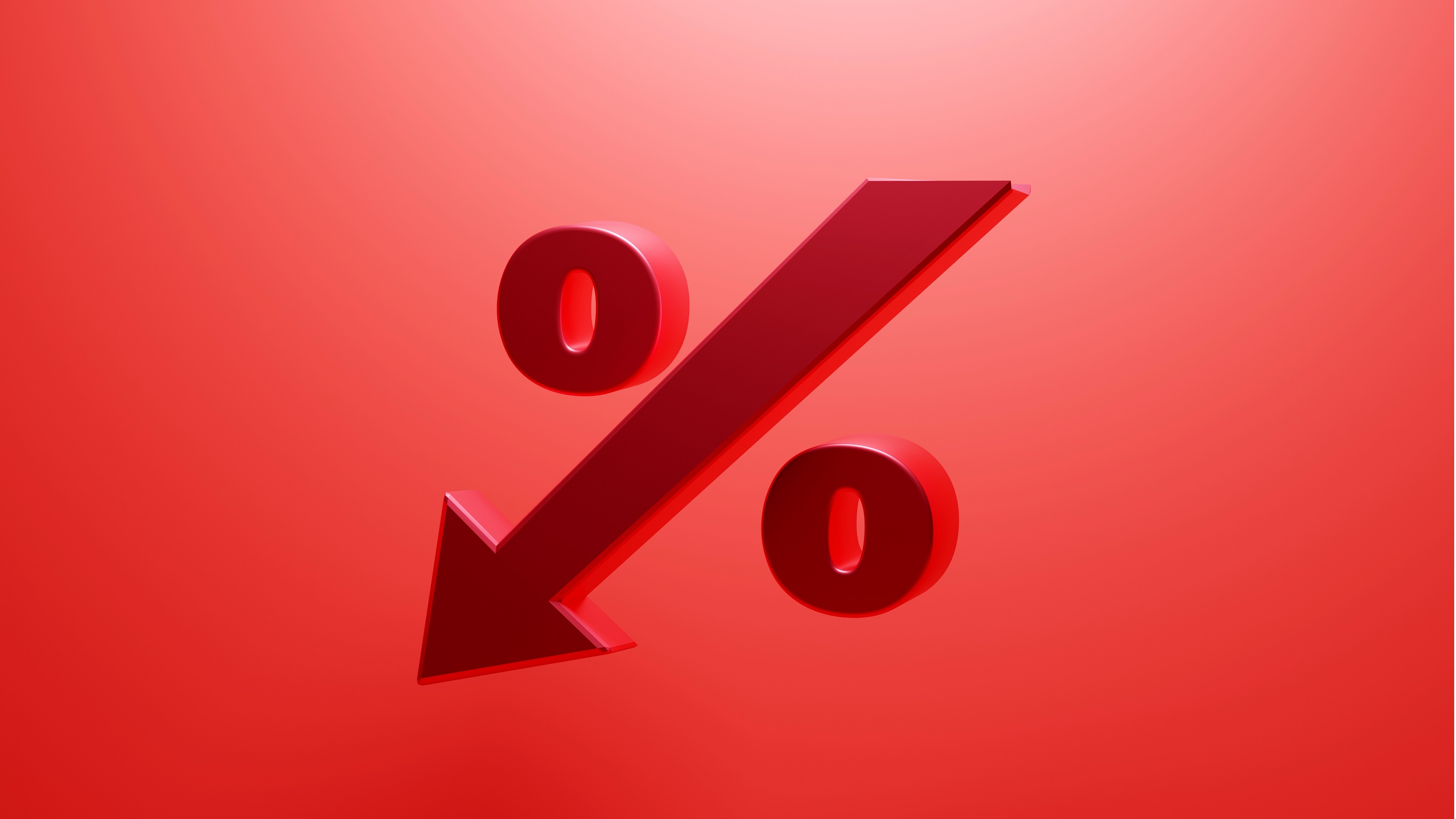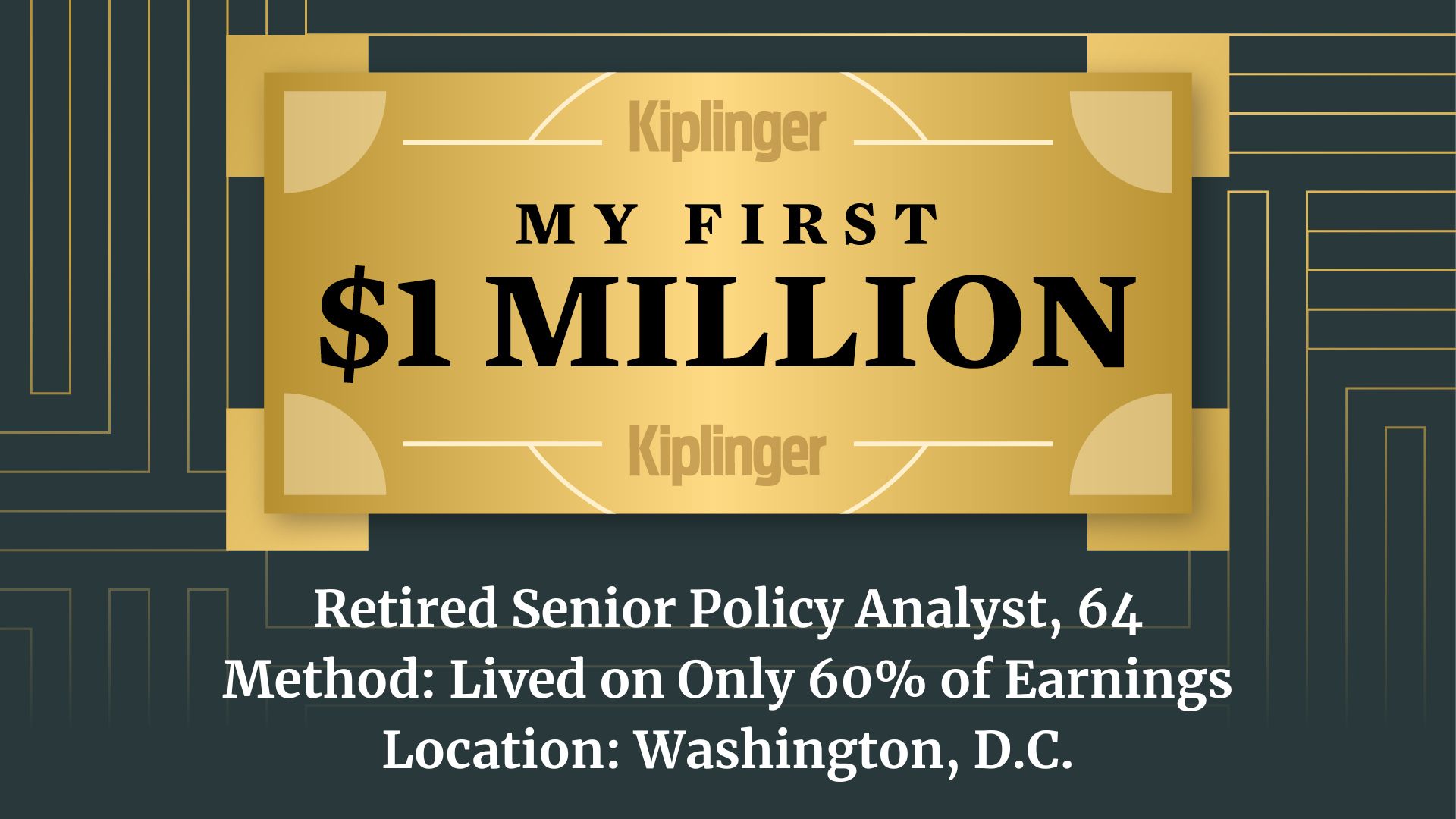How Lower Interest Rates Affect Your Finances
The Fed's rate cuts will provide relief for some borrowers, but savers will have to work harder to get decent returns.


Profit and prosper with the best of Kiplinger's advice on investing, taxes, retirement, personal finance and much more. Delivered daily. Enter your email in the box and click Sign Me Up.
You are now subscribed
Your newsletter sign-up was successful
Want to add more newsletters?

Delivered daily
Kiplinger Today
Profit and prosper with the best of Kiplinger's advice on investing, taxes, retirement, personal finance and much more delivered daily. Smart money moves start here.

Sent five days a week
Kiplinger A Step Ahead
Get practical help to make better financial decisions in your everyday life, from spending to savings on top deals.

Delivered daily
Kiplinger Closing Bell
Get today's biggest financial and investing headlines delivered to your inbox every day the U.S. stock market is open.

Sent twice a week
Kiplinger Adviser Intel
Financial pros across the country share best practices and fresh tactics to preserve and grow your wealth.

Delivered weekly
Kiplinger Tax Tips
Trim your federal and state tax bills with practical tax-planning and tax-cutting strategies.

Sent twice a week
Kiplinger Retirement Tips
Your twice-a-week guide to planning and enjoying a financially secure and richly rewarding retirement

Sent bimonthly.
Kiplinger Adviser Angle
Insights for advisers, wealth managers and other financial professionals.

Sent twice a week
Kiplinger Investing Weekly
Your twice-a-week roundup of promising stocks, funds, companies and industries you should consider, ones you should avoid, and why.

Sent weekly for six weeks
Kiplinger Invest for Retirement
Your step-by-step six-part series on how to invest for retirement, from devising a successful strategy to exactly which investments to choose.
When the Federal Reserve reduced its benchmark short-term interest rate by half a percentage point in September and then by another quarter percentage point in early November, it signaled that it’s shifting into a rate-cutting mode after a series of hikes that started in March 2022 to combat inflation.
That’s reason to celebrate if you have high-interest debt or expect to buy a home or car in the near future. But if you’re a risk-averse investor who has enjoyed earning 5% or more on your savings accounts, you probably aren’t joining in the festivities.
Rates on bank savings accounts and certificates of deposit (CDs) were starting to decline even before the Fed’s recent rate cuts and are likely to fall more in the months to come. Kiplinger expects the Fed to cut short-term interest rates an additional quarter percentage point at its December meeting and to continue cutting rates into 2026.
From just $107.88 $24.99 for Kiplinger Personal Finance
Become a smarter, better informed investor. Subscribe from just $107.88 $24.99, plus get up to 4 Special Issues

Sign up for Kiplinger’s Free Newsletters
Profit and prosper with the best of expert advice on investing, taxes, retirement, personal finance and more - straight to your e-mail.
Profit and prosper with the best of expert advice - straight to your e-mail.
While many banks will lower rates on savings accounts — if they haven’t already — it may still be possible to find savings accounts that are paying decent yields, says Yuval Dan Bar-Or, a finance professor at the Johns Hopkins Carey Business School. New online banks may continue to offer competitive rates on high-yield savings accounts to attract customers, he says.
The downside is that banks can lower rates on savings accounts at any time. Investing in a CD will lock in the current rate until the CD’s term ends. But opening a CD makes sense only if you know you won’t need the money before the CD matures, because you’ll usually pay a penalty on an early withdrawal.
If you plan to buy a house or send a child to college next year, investing in a one-year CD could make sense, says Ted Rossman, senior industry analyst for Bankrate. If you want to lock in interest rates over a period of years while also having access to some of your savings, consider building a CD ladder. With this strategy, you spread your cash among CDs of varying maturities — one-, two-, three- and five-year CDs, for example. As the CDs mature, you can cash out or reinvest in another CD, depending on prevailing interest rates.
The outlook for credit card debt. The average credit card interest rate dropped from 20.78% to 20.65% after the Fed cut rates in September, according to Bankrate. If you’re making minimum payments on your balance, that decline will barely move the needle on your monthly payment, Rossman says. Even if the Fed eventually cuts short-term rates by a total of 2.5 percentage points, as some analysts expect, the average credit card interest rate would likely remain above 18%. “That’s still very high-cost debt,” he says.
On the upside, rate cuts could lead credit card issuers to improve their balance-transfer deals, Rossman says. With a balance-transfer card, you can often take advantage of a 0% interest rate for a certain period — as long as 21 months. That could shave hundreds or even thousands of dollars from your interest payments, enough to offset a balance transfer fee of 3% to 5%. But this strategy makes sense only if you’re able to pay off the debt before the 0% window expires. After that, the rate on the remaining balance typically jumps into the double digits.
If you have a lot of home equity, another option is to take out a home equity line of credit to pay off your high-interest debt. Rates on HELOCs averaged 8.37% in October, according to Bankrate, and will likely fall in the months to come. Keep in mind, though, that if you’re unable to pay off your HELOC, you could lose your home, Rossman says. He recommends exploring balance-transfer deals before borrowing against your home.
Car loans. Interest rates on loans for new and used cars are also influenced by the Fed’s rate adjustments, but it could be several weeks or even months before consumers see a noticeable decline, says Jonathan Smoke, chief economist for Cox Automotive, a research firm. Delinquencies on auto loans were significantly higher at the end of 2023 than they were before the pandemic, according to the Federal Reserve. That has compelled lenders to charge higher rates to offset the risk that borrowers will default on their loans, Smoke says. If the Fed continues to cut rates through 2025, they could decline to 2019 levels, when interest rates for new-car loans averaged 7.5% to 8% and used-car loan rates averaged 10% to 10.5%.
In the interim, it pays to shop around. Get a loan preapproval from your credit union or bank so you can compare it with rates offered by the dealership.
Mortgage rates. Rates on 30-year mortgages were falling even before the Fed rate cuts, averaging 6.12% in early October, down from 7.49% a year earlier, according to Freddie Mac. However, those rates track the 10-year Treasury note, which is influenced by the projected direction of short-term interest rates over the next 10 years, says Kara Ng, senior economist for real estate website Zillow.
Although the recent decline in rates will help lower monthly payments on new loans, there are 31% fewer homes on the market than there were before the pandemic, Ng says. That has kept home prices elevated in many parts of the country. If you put off buying a home in hopes of a continued decline in mortgage rates, says Ng, you may be disappointed. There’s no guarantee mortgage rates will continue to fall, and Ng says that a return to the 3% rates homebuyers enjoyed in 2021 is unlikely. “Serious buyers should be ready to move if the right house turns up and it’s within their budget,” she says. “You can always refinance down the line if rates drop much further.”
Note: This item first appeared in Kiplinger Personal Finance Magazine, a monthly, trustworthy source of advice and guidance. Subscribe to help you make more money and keep more of the money you make here.
Related Content
Profit and prosper with the best of Kiplinger's advice on investing, taxes, retirement, personal finance and much more. Delivered daily. Enter your email in the box and click Sign Me Up.

Block joined Kiplinger in June 2012 from USA Today, where she was a reporter and personal finance columnist for more than 15 years. Prior to that, she worked for the Akron Beacon-Journal and Dow Jones Newswires. In 1993, she was a Knight-Bagehot fellow in economics and business journalism at the Columbia University Graduate School of Journalism. She has a BA in communications from Bethany College in Bethany, W.Va.
-
 Dow Loses 821 Points to Open Nvidia Week: Stock Market Today
Dow Loses 821 Points to Open Nvidia Week: Stock Market TodayU.S. stock market indexes reflect global uncertainty about artificial intelligence and Trump administration trade policy.
-
 Nvidia Earnings: Live Updates and Commentary February 2026
Nvidia Earnings: Live Updates and Commentary February 2026Nvidia's earnings event is just days away and Wall Street's attention is zeroed in on the AI bellwether's fourth-quarter results.
-
 I Thought My Retirement Was Set — Until I Answered These 3 Questions
I Thought My Retirement Was Set — Until I Answered These 3 QuestionsI'm a retirement writer. Three deceptively simple questions helped me focus my retirement and life priorities.
-
 How You Can Use the Financial Resource Built Into Your Home to Help With Your Long-Term Goals
How You Can Use the Financial Resource Built Into Your Home to Help With Your Long-Term GoalsHomeowners are increasingly using their home equity, through products like HELOCs and home equity loans, as a financial resource for managing debt, funding renovations and more.
-
 How to Find Free Money for Graduate School as Federal Loans Tighten in 2026
How to Find Free Money for Graduate School as Federal Loans Tighten in 2026Starting July 1, federal borrowing will be capped for new graduate students, making scholarships and other forms of "free money" vital. Here's what to know.
-
 My First $1 Million: Retired Senior Policy Analyst, 64, Washington, D.C.
My First $1 Million: Retired Senior Policy Analyst, 64, Washington, D.C.Ever wonder how someone who's made a million dollars or more did it? Kiplinger's My First $1 Million series uncovers the answers.
-
 Money Monsters Under the Bed? Here's What You're Really Afraid Of
Money Monsters Under the Bed? Here's What You're Really Afraid OfWhen financial anxiety keeps you awake, money isn't usually the root cause of the problem. Identifying the real demons will help you sleep — and live — better.
-
 Finances Not Going Anywhere? These 3 Steps Can Help You Find Your North Star
Finances Not Going Anywhere? These 3 Steps Can Help You Find Your North StarIf you're overwhelmed by financial planning, a long list of to-dos won't help. Find clarity by focusing on steps built around what's most important to you.
-
 Is Life Insurance Taxable When It's Paid Out?
Is Life Insurance Taxable When It's Paid Out?You received a big check from your loved one's life insurance policy. Will the IRS be expecting a check from you now?
-
 Before You Go to Costco, Try This Grocery Strategy First
Before You Go to Costco, Try This Grocery Strategy FirstA simple shift in how you plan meals could help you spend and waste less.
-
 Are You Making These 3 Savings Mistakes?
Are You Making These 3 Savings Mistakes?Avoiding these common mistakes can help you build a foundation of wealth while not leaving thousands of dollars on the table.